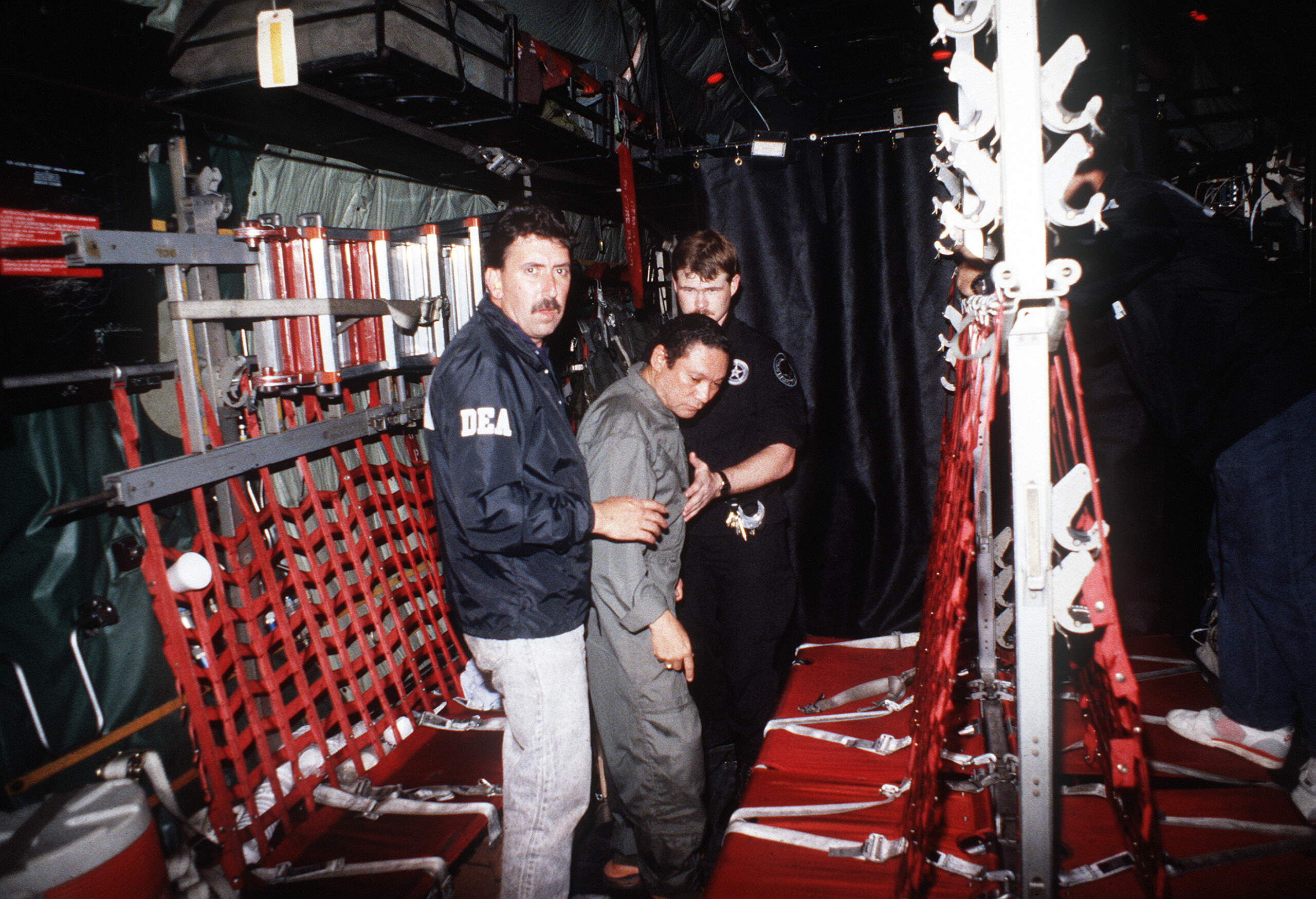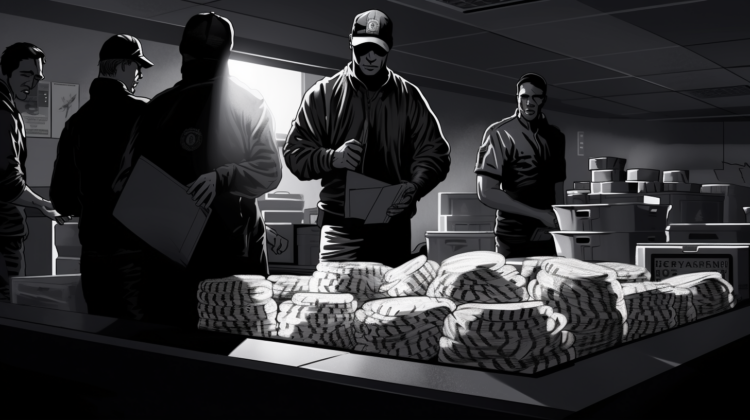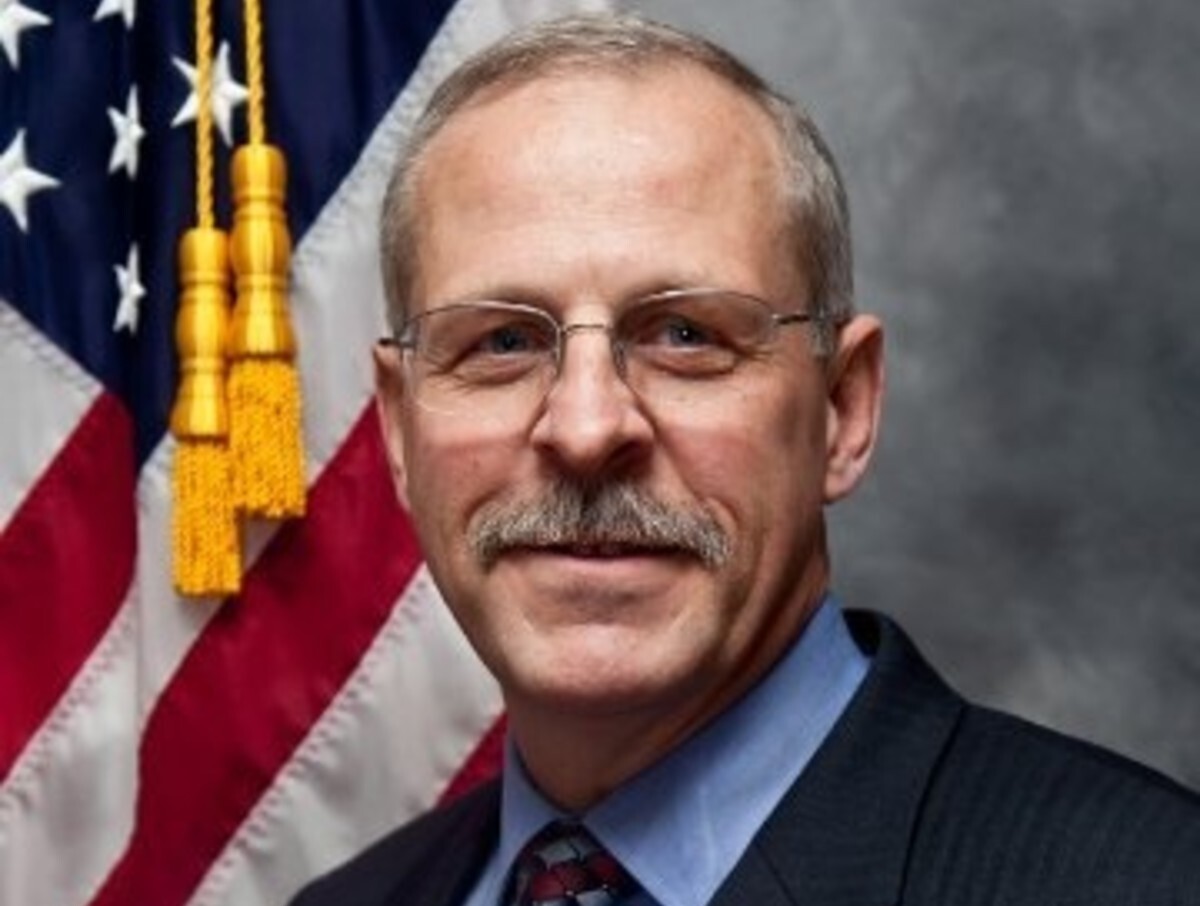Operation Just Cause
Operation Just Cause, launched in December 1989, was a U.S. military operation aimed at overthrowing Panamanian leader Manuel Noriega. The DEA’s role in this action was instrumental, although the process was much broader and involved multiple branches of the U.S. government.
On the ground, the DEA’s Special Operations Division assisted in tracking Noriega, who was attempting to evade capture. A tense standoff at the Vatican embassy in Panama City led to Noriega’s capture.

Subsequently, Noriega faced trial in the United States. In 1992, he was convicted on eight counts of drug trafficking, racketeering, and money laundering, marking a significant legal victory.
The Takedown of Pablo Escobar
Talk about a name that’s become synonymous with the drug trade. Pablo Escobar, the notorious Colombian drug lord, was once among the world’s wealthiest and most feared individuals. But he couldn’t escape the DEA’s determined pursuit.
Partnering with Colombian authorities, the DEA helped track down Escobar. It was a relentless chase filled with twists, turns, and many heart-pounding moments.
The final showdown in 1993 was more dramatic than anything you’d see on TV. It ended in Escobar’s death and signaled a significant blow to the Medellín Cartel.
Tactics: The Thin Line Between Right and Wrong
The DEA employed tactics that drew admiration and ire in pursuing their mission.
Informants and Undercover Operations
The DEA’s use of informants and undercover agents has all the makings of a gripping thriller. They’ve used this strategy to infiltrate some dangerous drug cartels.
Take the case of “Operation Trapdoor” in the late ’80s. DEA agents posed as criminal organization members to take down a significant cocaine trafficking network. The operation was successful but not without controversy.
Sometimes, these undercover stings faced backlash for going too far. The DEA has been accused of entrapping individuals, leading them into criminal activities they might not have pursued otherwise.
Critics have pointed to operations where agents encouraged small-time offenders to commit more substantial crimes, only to bust them later.
Civil Asset Forfeiture
Civil Asset Forfeiture is when the DEA (or other law enforcement agencies) seize property they believe is connected to a crime. Sounds straightforward, right?
In the world of the DEA, this has often meant taking cars, homes, and even cash without the owner ever being charged with a crime. Imagine having your assets taken because someone else used them in a drug deal.
A famous example is the 2013 seizure of a family-owned motel in Massachusetts. The DEA claimed the property was connected to drug crimes, though the owners faced zero charges.
After a lengthy legal battle, the owners retained their property, but the case drew national attention.
Proponents see this as a crucial tool to hit criminals where it hurts – their wallets. But critics argue it’s a system ripe for abuse, leading to situations that ruin innocent lives.
Challenges: An Ongoing Struggle
The DEA’s controversial history isn’t just about tactics and triumphs. It was likewise a series of significant challenges. The war on drugs has often seemed like an uphill battle, and some of the issues are as relevant today as they were in the ’70s.
Public Perception and Trust
Balancing aggressive enforcement with respect for civil rights has been a tightrope walk for the DEA. Scandals and alleged misconduct have eroded trust in some communities, leading to calls for reform and oversight.
Adaptation to New Threats
From synthetic drugs to the dark web, the landscape of drug trafficking is ever-changing. Keeping up with criminals’ latest trends, technologies, and strategies is a never-ending challenge.
The DEA’s Complex Legacy
It was a whirlwind tour of the DEA’s controversial history. It’s a story of triumphs and tactics, of bravery and blunders. It’s a tale that reflects the complexities of law enforcement, where the line between right and wrong can sometimes seem all too thin.
The DEA’s controversial history offers a vivid lesson in law enforcement’s often messy, multifaceted nature. It continues to shape our understanding of justice, freedom, and the rule of law.











COMMENTS